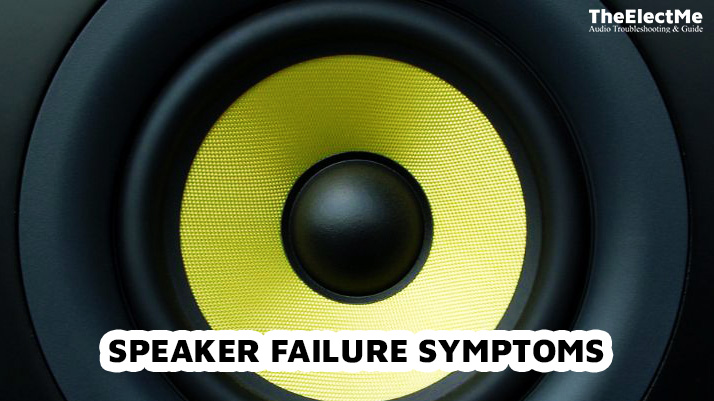Are subwoofers bad for your ears? A hot topic among audiophiles and music lovers alike. With the booming bass and deep thumping sounds, it’s no wonder there is some concern about their impact on our hearing.
Let’s look deeper into the world of subwoofers and their potential effects on our ears. Understanding the science behind sound and how our ears work can help us conclude whether subwoofers are truly harmful or not. So, let’s explore this controversial topic and find the answer to this burning question.

To understand whether subwoofers are bad for our ears, it’s important to know what they are and how they work.
What Are Subwoofers?
Subwoofers are specialized speakers designed to reproduce low-frequency audio signals. They are often used for enhanced bass in home entertainment and car audio systems.
These speakers are larger than regular speakers and can produce low-frequency sounds. They work by converting electrical signals into mechanical vibrations. These vibrations then create sound waves that we can hear.
Now, let’s get to the heart of the matter – are subwoofers harmful to our ears?
Are Subwoofers Harmful To Our Ears?
The short answer is big no. Subwoofers, on their own, cannot harm our ears.
The key factor here is volume. Any sound, including subwoofer bass, can become harmful if loud. Our ears have a limited capacity for tolerating. According to the World Health Organization, exposure to sounds above 85 decibels (dB) can cause permanent hearing damage.
Most subwoofers have a frequency range of 20-200 Hz and can produce sounds up to 120 dB. Most home audio systems maintain safe sound levels around 85 dB for everyday listening.
So, as long as you use your subwoofer at a reasonable volume, it should not harm your ears.
But is does not mean that subwoofers are completely harmless. Let’s take a closer look at a loud subwoofer could cause some damage to our hearing.
Possible Risks Of Loud Subwoofers
While subwoofers may not cause harm, some potential risks are associated with excessive bass levels. How to make your subwoofers have more bass? These include:
1. Hearing Damage
Prolonged exposure to high-volume subwoofer sound levels can pose a significant risk to hearing health. Loud subwoofers’ low-frequency vibrations can pressure the inner ear, potentially causing hearing loss over time. Are speaker magnets dangerous?
2. Tinnitus
Too much exposure to loud subwoofer bass can lead to tinnitus, marked by ongoing ringing or buzzing in the ears. Continuous exposure to low-frequency sounds can damage the auditory nerve, leading to phantom noises that disrupt daily life and sleep.
3. Disturbance of Vestibular System
Intense subwoofer vibrations can disturb the vestibular system responsible for balance and spatial orientation. Powerful bass waves can cause imbalance and disorientation, particularly in sensitive individuals or after long exposure.
4. Increased Stress Levels
Regular exposure to loud subwoofer noise can increase stress and cause anxiety and irritability. Booming bass can heighten stress and arousal, possibly leading to lasting psychological effects.
5. Impact on Concentration and Sleep
Loud subwoofer sounds at night or in quiet areas can disrupt focus and interfere with sleep. The low-frequency rumble drowns out other sounds, making it hard to concentrate or sleep, and impacts well-being and productivity.
To avoid these risks, using subwoofers at safe sound levels is essential. Let’s look at some tips on how to use subwoofers without harming our ears.

How to Use Subwoofers Safely?
When using subwoofers, it is crucial to consider the following tips for a safe and enjoyable listening experience:
1. Monitor Volume Levels
Regulating your subwoofer’s volume is essential to avoid exposing yourself to excessively loud sound levels. Keeping the volume moderate protects your ears and ensures a comfortable listening experience.
2. Take Regular Breaks
Take periodic breaks from the subwoofer, especially during long listening sessions. Taking short intervals allows your auditory system to recover from exposure to low-frequency vibrations and reduces the risk of cumulative hearing damage.
3. Use Sound Limiting Features
Modern subwoofers have built-in sound limiting features or adjustable settings to control the maximum volume output. Use these features to set safe volume limits and avoid accidental exposure to very loud bass.
4. Optimize Speaker Placement
Correct subwoofer placement improves sound quality and reduces ear risks. Place the subwoofer away from listening spots to avoid direct exposure to intense bass and ensure balanced sound distribution.
5. Invest in Acoustic Treatments
Consider adding acoustic treatments to your listening space to reduce low-frequency sound effects. Acoustic panels, bass traps, and sound-absorbing materials reduce reflections and resonances, creating a controlled listening environment that’s easier on your ears.
6. Limit Exposure Time
Be mindful of the duration you expose yourself to subwoofer-generated bass sounds. Limiting listening session lengths can lessen ear impact and allow recovery time, promoting long-term ear health.
7. Seek Professional Advice
If discomfort, hearing changes, or issues arise from using a subwoofer, consult an audiologist or healthcare professional. Seeking expert advice can assess the effects of subwoofer exposure on ears and recommend effective hearing protection. How to fix a short circuit in the subwoofer?
FAQS
How many decibels is a subwoofer?
110 to 120 decibels is a common maximum volume output for most subwoofers. However, this can vary depending on the type and manufacturer.
Are subwoofers good for ears?
Subwoofers, on their own, do not harm ears at moderate or low volume levels. However, prolonged exposure to loud subwoofer bass can cause hearing damage and other ear-related issues.
Are subwoofers worth it?
Yes, subwoofers can significantly enhance audio quality and bass performance. They can be valuable to any sound system as long as they are used at safe sound levels.
Final Thoughts – Are Subwoofers Bad For Your Ears?
To sum up, subwoofers are not inherently bad for our ears. Excessively loud subwoofer bass can cause harm. With proper use and safety measures, subwoofers can offer a great listening experience without harming our ears.
Remember to prioritize your ear’s safety while enjoying the bass boost from your subwoofer. Following the tips above can ensure a safe and enjoyable listening experience for years. So go ahead and crank up the bass, but do so responsibly! Happy listening!

